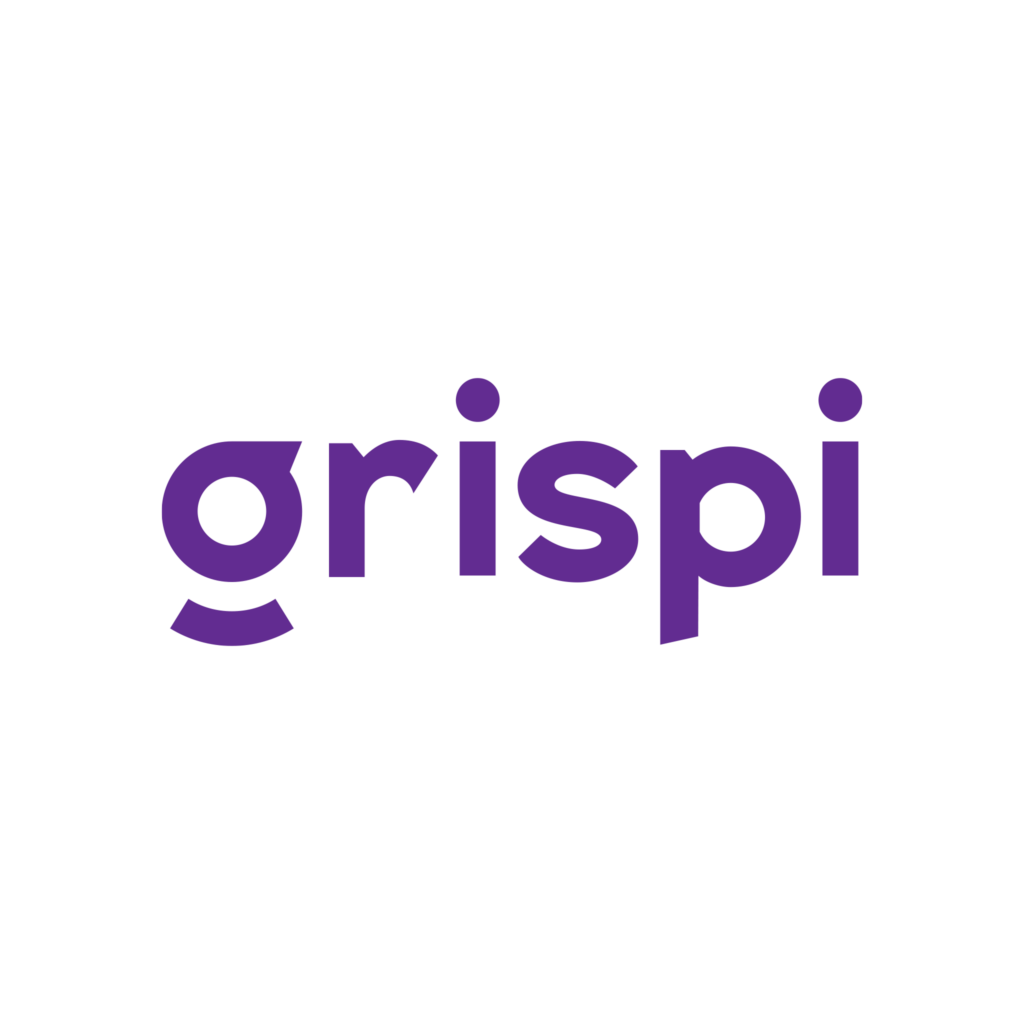The Best Basic CRM Software of 2025
- April 12, 2025
In today’s highly competitive business landscape, effective customer relationship management is vital for driving sustainable growth and building long-term customer loyalty. However, the success of a CRM system hinges not only on its features and capabilities but also on its ease of use. A user-friendly interface not only boosts user adoption but also enhances efficiency, data accuracy, and overall customer experience.
In this article, we delve into the significance of ease of use in CRM systems and explore some of the top CRM platforms renowned for their intuitive interfaces and seamless functionality.
1. Grispi
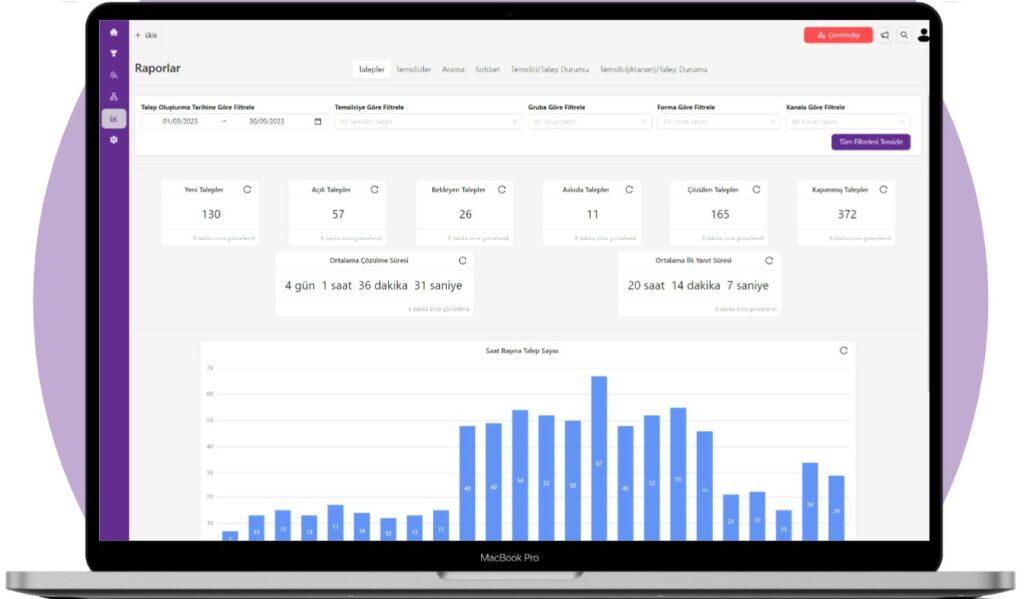
Grispi is a customer relationship management software known for its easy-to-use interface. It allows you to manage customer demands on a single platform with integrations with channels such as telephone, email, and social media. It helps you stay on top of your tasks with features such as automated triggers, department-specific request assignment, and detailed analytics.
You can contact us to try the affordable demand management platform Grispi free of charge for 14 days.
2. Zoho CRM
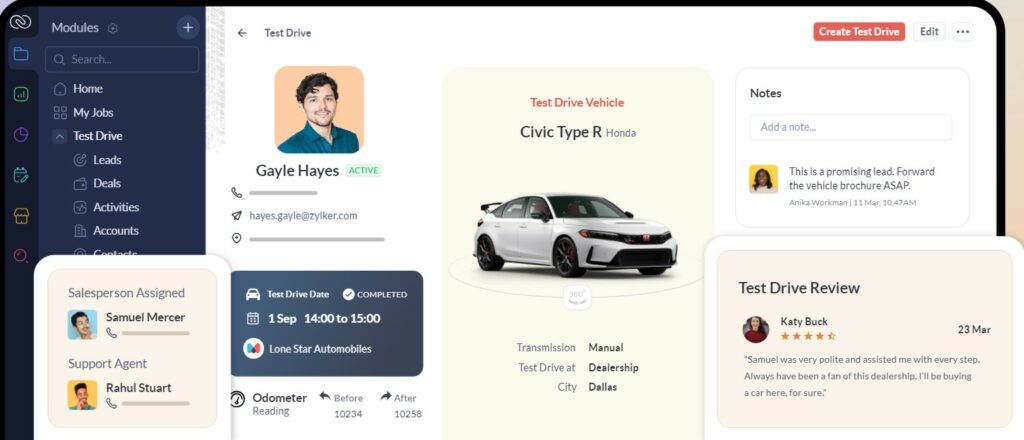
Zoho CRM stands out for its user-friendly interface and comprehensive features. With its intuitive dashboard and customizable modules, users can easily navigate through various functions such as lead management, contact management, and sales tracking. Zoho CRM also offers seamless integration with other Zoho applications and third-party tools, enhancing its usability and versatility for businesses of all sizes.
3. Freshsales
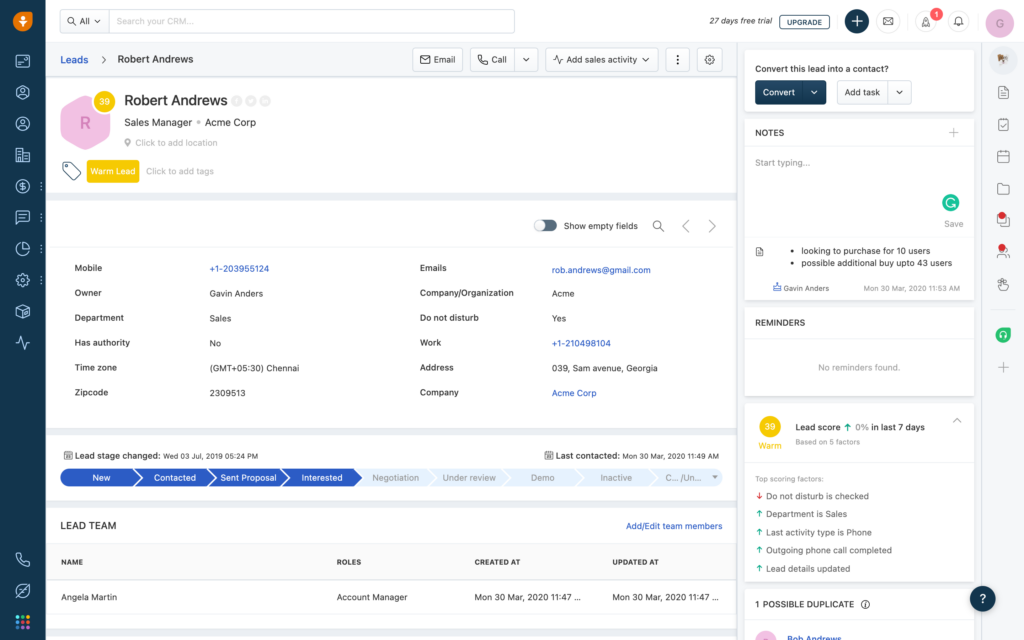
Freshsales is lauded for its simplicity and quick setup. Designed with the end-user in mind, Freshsales offers a clean interface with drag-and-drop functionality, making it effortless to manage contacts, track deals, and analyze sales performance. Its intuitive workflow automation and AI-powered features further streamline processes, empowering users to focus on building stronger customer relationships.
4. HubSpot
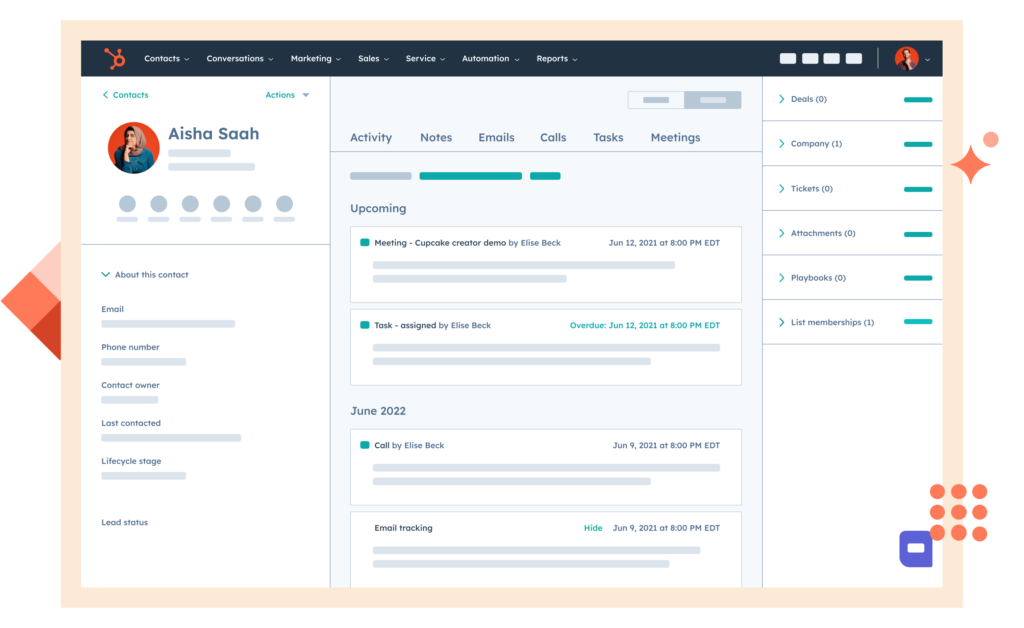
HubSpot CRM is renowned for its user-centric design and accessibility. Ideal for small to midsize businesses, HubSpot offers a straightforward interface with robust features for marketing, sales, and customer service. Its seamless integration with HubSpot’s suite of marketing and sales tools offers a unified platform for managing customer interactions and accelerating growth.
5. Pipedrive
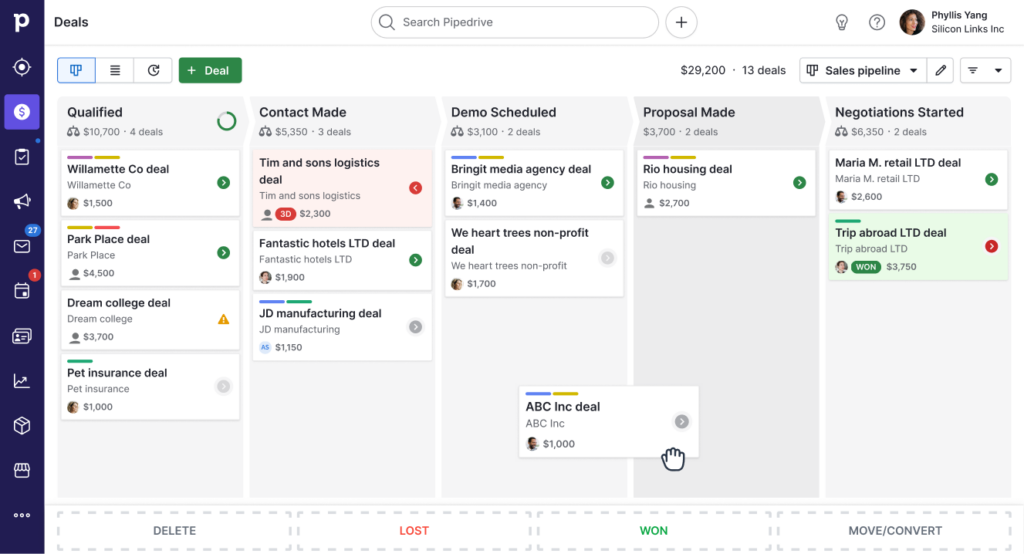
Pipedrive prides itself on its simplicity and ease of use for sales teams. With its visual pipeline layout and drag-and-drop functionality, Pipedrive simplifies the sales process, allowing users to track deals and prioritize tasks efficiently. Its intuitive mobile app enables users to manage leads and access critical data on the go, ensuring productivity and responsiveness wherever you are.
6. Salesforce
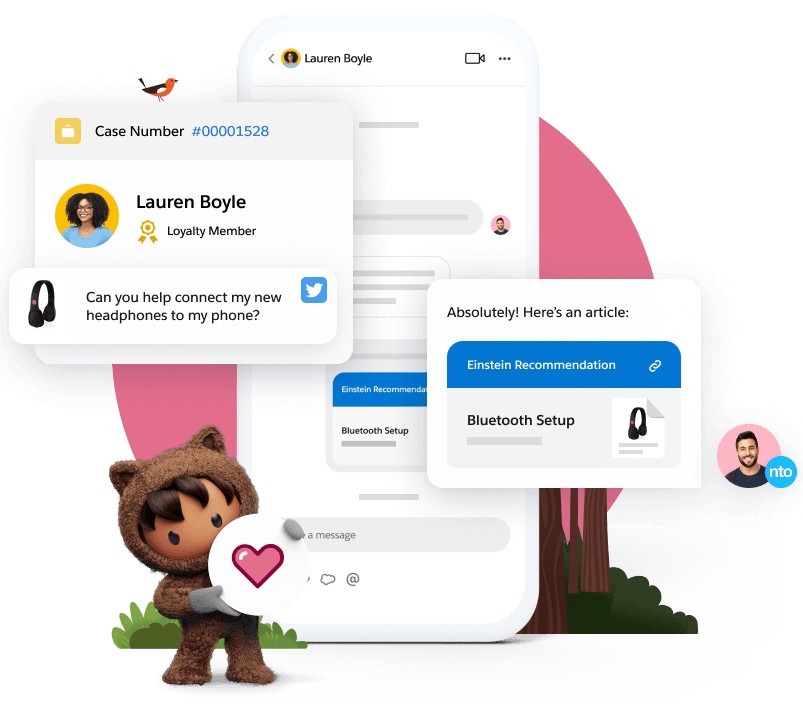
Salesforce, while offering extensive customization and scalability, also emphasizes usability through its Lightning interface. With intuitive navigation and personalized dashboards, Salesforce enables users to customize their CRM experience to meet their specific needs. Its vast ecosystem of apps and integrations further enhances usability, providing users with a seamless and integrated CRM solution.
Why is Ease of Use Important in CRM Systems?
In today’s fast-paced business environment, CRM systems play a crucial role in maintaining and nurturing relationships with customers. However, the effectiveness of a CRM system heavily relies on its usability and ease of use. Here’s why ease of use is paramount in CRM systems:
- User Adoption: A CRM system’s success largely depends on how readily it is adopted by the team. If the interface is complex and cumbersome, employees may resist using it, leading to underutilization of the system and missed opportunities for data collection and analysis.
- Efficiency: An intuitive CRM interface allows users to navigate seamlessly through the system, saving time and effort in accessing and inputting data. This efficiency translates into increased productivity as employees can focus more on customer interactions rather than grappling with the system.
- Reduced Training Time: Easy-to-use CRM systems require minimal training, enabling organizations to onboard new employees quickly. This is particularly important in dynamic environments where staff turnover is common or when scaling up the team.
- Improved Data Quality: When CRM systems are user-friendly, employees are more likely to consistently input accurate and complete data. This ensures that the CRM database remains up-to-date and reliable, providing valuable insights for decision-making.
- Better Customer Experience: A smooth CRM experience translates to better service delivery. With easy access to customer information, employees can personalize interactions, anticipate needs, and provide timely support, thereby enhancing the overall customer experience.
Now, let’s delve into some popular CRM systems known for their ease of use:
What Factors Are Used to Score CRM Software Companies?
Evaluating CRM software companies typically involves assessing various factors to assess the quality, effectiveness, and suitability of their products and services for businesses. These factors may vary depending on the specific needs and priorities of the evaluating entity, but commonly considered aspects include:
Features and Functionality
The breadth and depth of features offered by the platform, including contact management, lead tracking, sales automation, customer service tools, reporting and analytics capabilities, integrations, and customization options.
User Experience (UX)
The intuitiveness and ease of use of the software’s interface, navigation, and workflow. A positive user experience is crucial for ensuring high adoption rates among employees and maximizing productivity.
Scalability and Flexibility
The ability of the CRM software to accommodate the evolving needs and growth of a business, including the capacity to handle increased data volumes, users, and complexity without significant performance degradation or the need for extensive reconfiguration.
Customization and Personalization
The extent to which the CRM software allows users to tailor the system to their specific business processes, branding, terminology, and reporting requirements. Flexible customization options enable organizations to adapt the CRM solution to their unique workflows and preferences.

Integration Capabilities
The ease of integrating the CRM software with other essential business applications, such as marketing automation tools, email platforms, accounting software, and ERP systems. Seamless integrations facilitate data exchange and streamline processes across different departments.
Data Management and Security
The robustness of data management features, including data import/export capabilities, data deduplication, data cleansing, and data security measures such as encryption, access controls, and compliance with industry regulations (e.g., GDPR, HIPAA).

Customer Support and Training
The quality and availability of customer support services provided by the CRM software vendor, including technical assistance, training resources, documentation, and community forums. Responsive and knowledgeable support enhances the overall user experience and helps resolve issues promptly.
Pricing and Value for Money
The affordability and cost-effectiveness of the CRM software, considering factors such as subscription fees, implementation costs, scalability options, and the value delivered in terms of increased productivity, efficiency, and revenue generation.
User Reviews and Reputation
Feedback and testimonials from existing customers and industry experts regarding their experiences with the CRM software, including satisfaction levels, performance, reliability, and vendor responsiveness. Positive reviews and a strong reputation can instill confidence in prospective buyers.
Innovation and Roadmap
The vendor’s track record of innovation, product development, and commitment to staying abreast of emerging technologies and industry trends. A clear product roadmap signals ongoing investment in improving and enhancing the CRM solution to meet evolving customer needs.
By considering these factors comprehensively, organizations can make informed decisions when evaluating and selecting CRM software that best aligns with their business objectives and requirements.
In conclusion, ease of use is a fundamental aspect of CRM systems, impacting user adoption, efficiency, data quality, customer experience, and ultimately, business success. These CRM systems demonstrate how user-friendly interfaces and intuitive features contribute to a more efficient and satisfying CRM experience for both organizations and their teams.
Contact Us
Fill out the form for detailed information and demo account, let us call you.
